
My biggest dream as a child was for someone to offer me a ticket to visit another country. If I were asked where I'd go I would most likely have said India or the United States, since watching TV shows from Hollywood and Bollywood had thoroughly charmed me. But the ticket never came, so I stayed with my parents mostly in Accra, Ghana's capital city, while far away places made my heart twitch with desire.
It didn't help that the Ghana of my childhood was problematic. In the 1980s we lived under a military regime, and I remember being scared of going with my mother to the bank – simply because they were guarded by soldiers. Even after our government became civilian in the 1990s – and my parents did everything they could to shield my sister and myself from their struggles – I could sense that my family wasn't going through the easiest of times. Much later, my father told me how one day, desperate, he assembled all the glass bottles in the house to give them to a koliba – a person who paid for bottles with coins. I couldn't just ask for a vacation to New Delhi or New York.
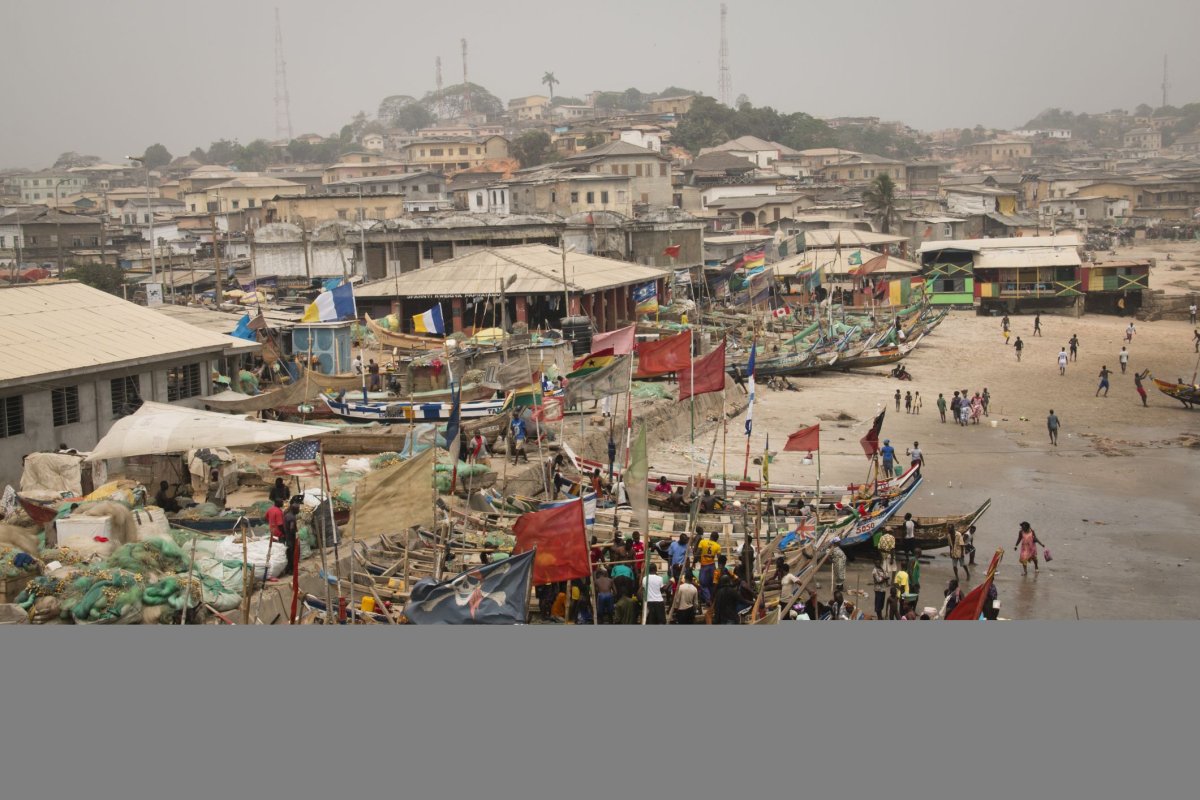
Over the years, I've tried to digest my wanderlust and it could have been the grass-is-greener syndrome. Life seemed more glamorous in the places I saw on television and in magazines. And it was definitely tinged with some form of green: on long vacations, my moneyed classmates would head off to the States or England, always coming back with new shoes, new watches, and new accents. Usually, my sister and I would spend our vacations playing with our neighborhood friends, with nothing much to show for ourselves.
One summer circa 1994, my parents decided to send us to visit Mma, my father's mother who lived in the northern reaches of Ghana. In other words, the boonies. Chaperoned by an aunt, my sister and I sat in an unglamorous State Transport Corporation bus, and I sulked because it felt as if we were being punished, a feeling that disappeared as soon as we were welcomed with the relief of rolling grey hills just outside Accra. The farther away we drove from the south, the more road dipped and rose, gravity pulling on the pits of my stomach with each fall.
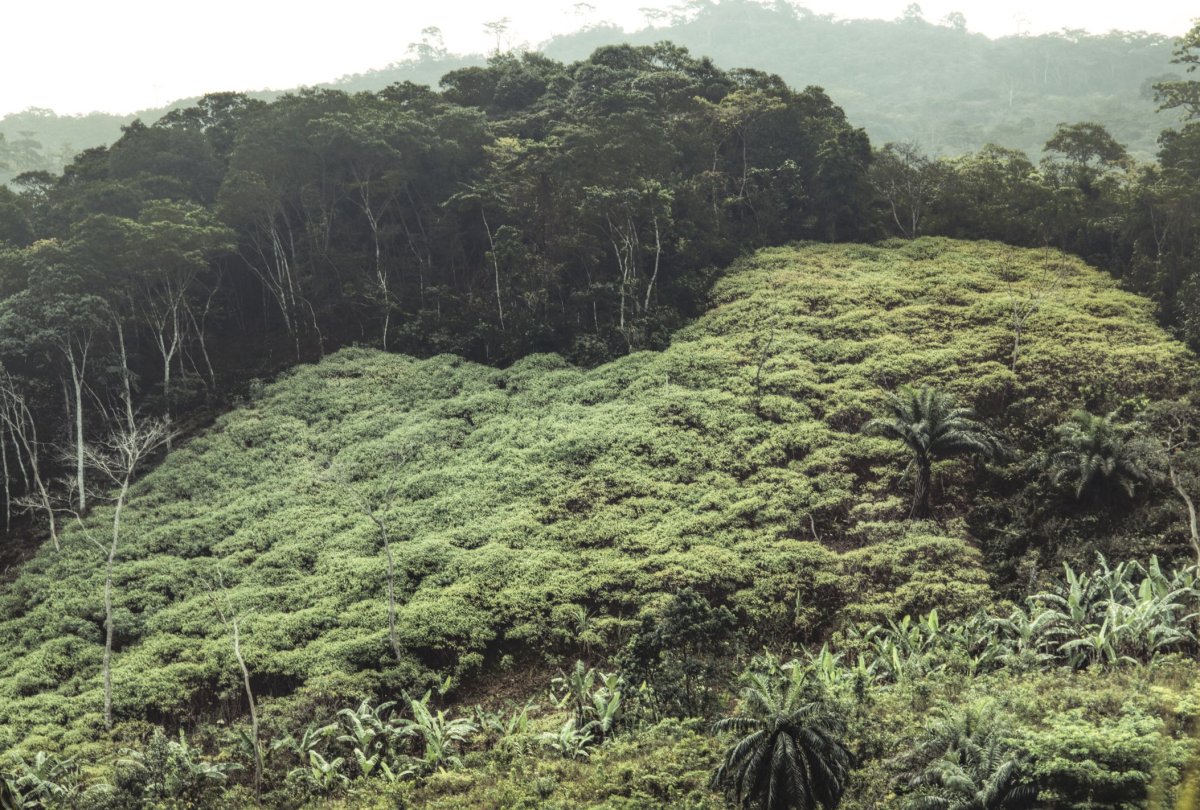
Thick tall trees scraped the sky and the air grew thicker, saturated with promised rain, marking the beginning of the forest region. Roads in those days bore crater-sized potholes and our bus wasn't air-conditioned, so the journey had its treacherous moments, but I found myself falling in love with my country for the first time. Cutting through the thick forest, I thought of my maternal family, proud card-bearing members of the Asante people, once a kingdom that fought five wars against the British before succumbing to colonization. One that was also responsible for enslaving many people from the north.
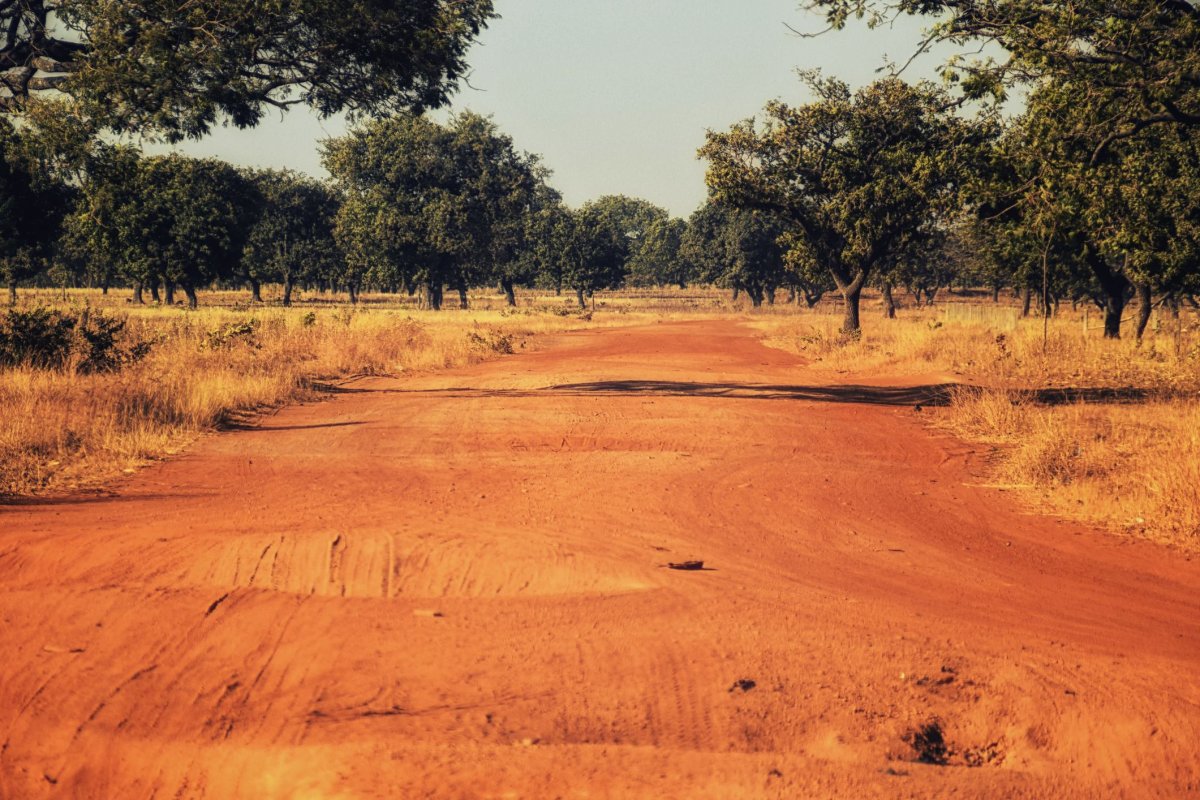
The bus continued its climb up north. As if a creator had penciled in a natural barrier with the Black Volta River, the towering trees stayed behind and were replaced with long grass shooting out of the earth and a sprinkling of stubby shea and acacia trees. The land seemed unending. The closest experience I'd come to this openness was the sea in Accra, but the vastness of the savannah seemed greater.
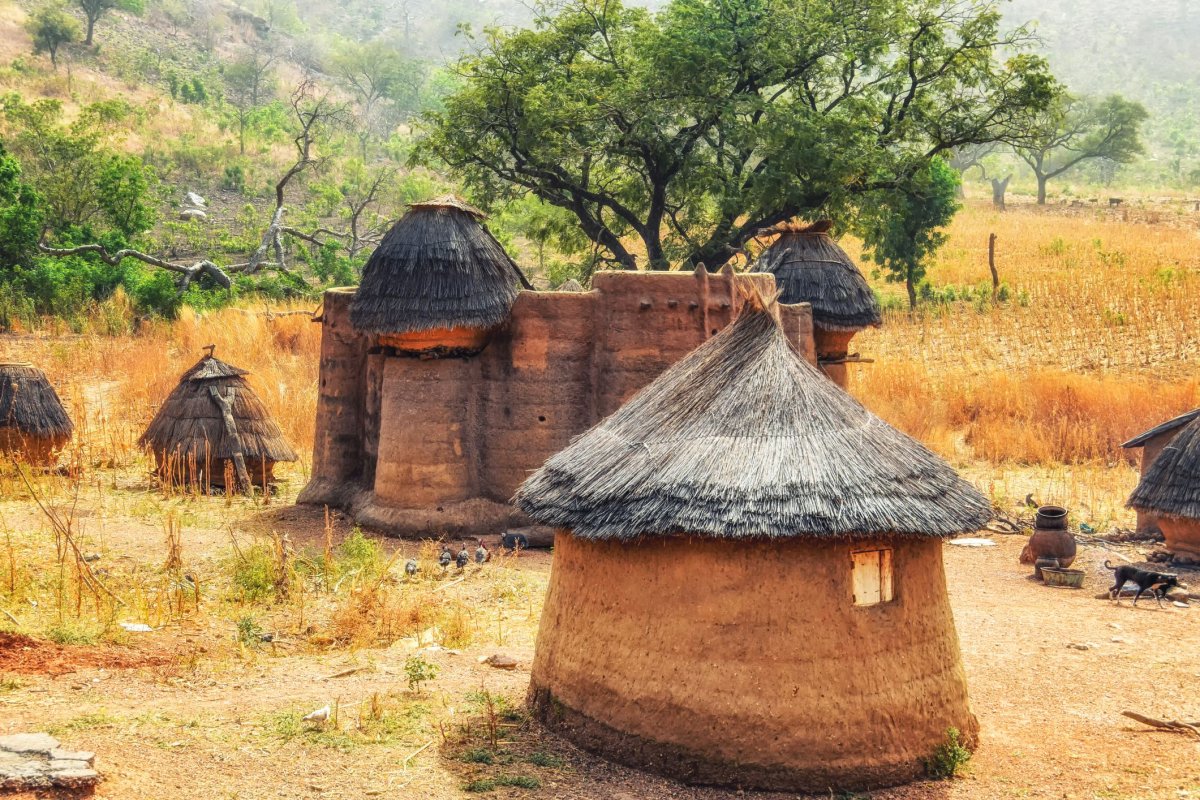
When we arrived in Tamale, the capital city of the Northern Region, we were welcomed into Mma's home, with cousins, aunts, and uncles shouting, "Maraba, maraba, maraba!" They folded us into their town, where women drove motorcycles, where on every corner was roasted guinea fowl powdered with suya pepper, and where, to my urban surprise, some of my family still lived in huts then. These roomy spaces were the coolest places to beach oneself when the day grew hotter. My favorite memory of childhood was planted on that trip. One day, the sky poured itself out and all the children in Mma's house decided we weren't going back inside. I still remember our delighted shrieks as we splashed in the rain. I had never felt so free.
We would return to Tamale a few times after that first trip, and when I wrote The Hundred Wells of Salaga, a novel about a woman who is enslaved in the northern part of pre-colonial Ghana, it was these trips to the north that colored my imagination and filled out the pages. While writing, I often thought of my paternal family and how they felt at home in the vastness of the savannah, how sending one of them into the forest would inflict them with crushing claustrophobia, not even to speak about the effect the sea would have had on them.
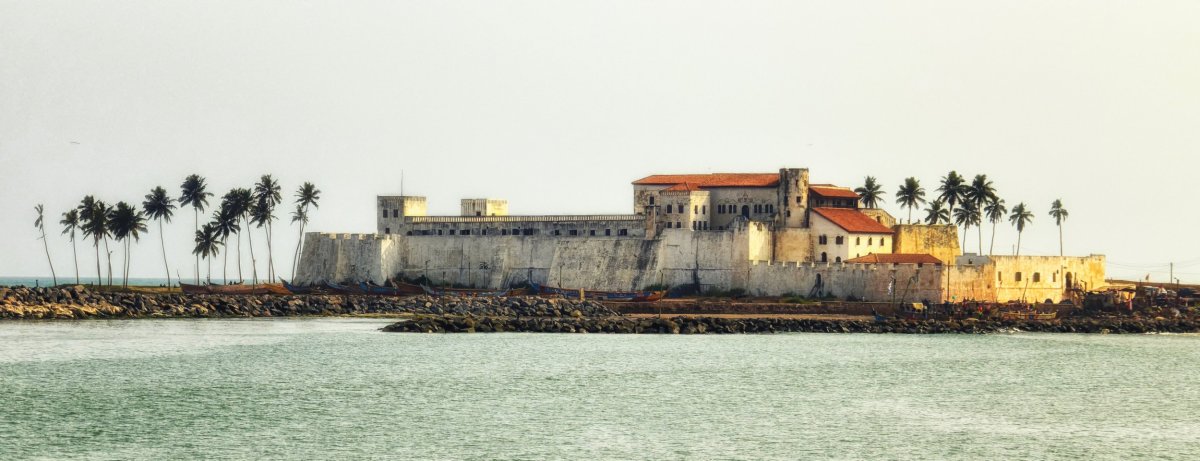
Ghana is a country with a colorful, complicated, but sometimes shameful past. Our country was the first African country to gain independence in 1957, but even before this happened, and before it was the Gold Coast, this land housed several slave markets as well as the majority of slave castles in West Africa. These were places where many Africans were held before being sent on deadly voyages to the Americas.
As I have grown to love my country, I've also learned of the secrets and pain this beautiful land still harbors.
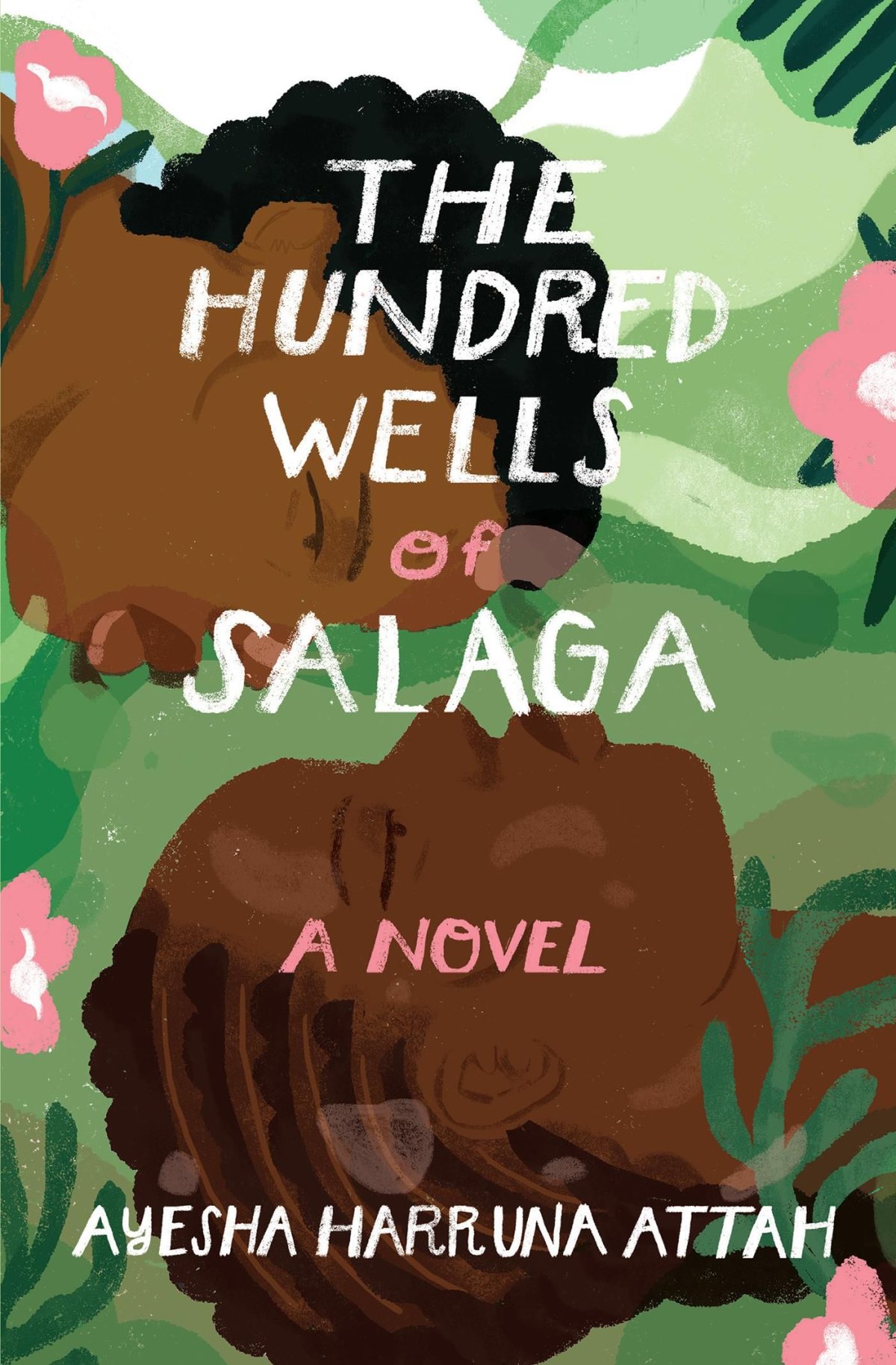
Ayesha Harruna Attah's latest book, The Hundred Wells of Salaga, was published February 5, 2019 by Other Press. Her debut novel, Harmattan Rain, was nominated for the Commonwealth Writers' Prize in 2010. Attah, who currently lives in Senegal, was awarded the 2016 Miles Morland Foundation Scholarship for non-fiction.
Uncommon Knowledge
Newsweek is committed to challenging conventional wisdom and finding connections in the search for common ground.
Newsweek is committed to challenging conventional wisdom and finding connections in the search for common ground.
About the writer
To read how Newsweek uses AI as a newsroom tool, Click here.








